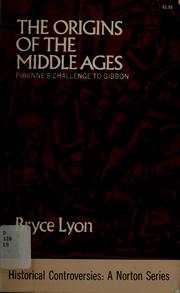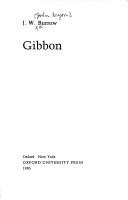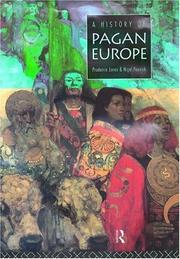| Listing 1 - 10 of 10 |
Sort by
|
Book
Year: 1784 Publisher: Roma: per Luigi Perezo Salvoni,
Abstract | Keywords | Export | Availability | Bookmark
 Loading...
Loading...Choose an application
- Reference Manager
- EndNote
- RefWorks (Direct export to RefWorks)
Book
ISBN: 3846742457 Year: 2007 Publisher: Paderborn : Wilhelm Fink Verlag,
Abstract | Keywords | Export | Availability | Bookmark
 Loading...
Loading...Choose an application
- Reference Manager
- EndNote
- RefWorks (Direct export to RefWorks)
Pablo Picasso, Kasimir Malewitsch, Kurt Schwitters, Jasper Johns, Edward Ruscha und Richard Prince sind die bahnbrechenden Künstler, deren bildgenerative Verfahren und Collagekonzepte Schaesberg paradigmatisch herausarbeitet. Die Collage setzt vorgefundene Bruchstüc ke dieser Welt zusammenhängend ins Werk, wobei die verschiedenen Materialien absichtsvoll nicht nur die Spuren ihrer Herkunft im Bild bewahren, sondern jegliche strikte, sequenzielle Entwicklung eines konsistenten semantischen Bildzusammenhangs verletzt. Die Collage unterminiert systematisch jene Vorstellungen, wie das Werk sich gemäß vorgeblicher ästhetischer Prämissen entfalten soll, um dadurch der Imagination des Betrachters künstlerische Produktionsprozesse zu übertragen.
Mithraism. --- Christianity and other religions --- 11.18 foreign religions and cults in the Roman Empire. --- Art, Modern --- Collage.
Book
ISBN: 9781405182232 1405182237 Year: 2009 Publisher: Malden, Mass. Wiley-Blackwell
Abstract | Keywords | Export | Availability | Bookmark
 Loading...
Loading...Choose an application
- Reference Manager
- EndNote
- RefWorks (Direct export to RefWorks)
Film
---
Roman history
---
Altertum
---
Antiken på film.
---
Film.
---
Geschichtsschreibung.
---
Motion pictures.
---
Motiv (Film).
---
Rom på film.
---
Römisches Reich.
---
Motiv
---
Altertum.
---
Marcus Aurelius,
---
Fall of the Roman Empire (Film).
---
Fall of the Roman Empire (Motion picture).
---
Fall of the Roman Empire
Book
Year: 2006 Publisher: Project Gutenberg
Abstract | Keywords | Export | Availability | Bookmark
 Loading...
Loading...Choose an application
- Reference Manager
- EndNote
- RefWorks (Direct export to RefWorks)
Rome --- History --- Empire --- 30 B.C.-476 A.D. --- Historiography --- Gibbon --- Edward --- 1737-1794 --- 1737-1794. History of the decline and fall of the Roman empire
Book
Year: 2006 Publisher: Project Gutenberg
Abstract | Keywords | Export | Availability | Bookmark
 Loading...
Loading...Choose an application
- Reference Manager
- EndNote
- RefWorks (Direct export to RefWorks)
Rome --- History --- Empire --- 30 B.C.-476 A.D. --- Historiography --- Gibbon --- Edward --- 1737-1794 --- 1737-1794. History of the decline and fall of the Roman empire

ISBN: 0393054497 0393099938 9780393099935 9780393054491 Year: 1972 Publisher: New York Norton
Abstract | Keywords | Export | Availability | Bookmark
 Loading...
Loading...Choose an application
- Reference Manager
- EndNote
- RefWorks (Direct export to RefWorks)

ISBN: 0192875531 0192875523 9780192875532 9780192875525 Year: 1985 Publisher: Oxford Oxford university press
Abstract | Keywords | Export | Availability | Bookmark
 Loading...
Loading...Choose an application
- Reference Manager
- EndNote
- RefWorks (Direct export to RefWorks)
Historians --- Biography --- Gibbon, Edward, --- Rome --- History --- Historiography --- -Historiographers --- Scholars --- Gibbon, Edward --- -Historiography. --- -Biography --- Gibbon, Eduard --- Historiography. --- Historians - Great Britain - Biography --- Gibbon, Edward, - 1737-1794 --- Gibbon, Edward, - 1737-1794 - History of the decline and fall of the Roman Empire --- Rome - History - Empire, 284-476 - Historiography

ISBN: 9780521640022 9780521797603 9780521797597 9780521672337 9780521721011 9781107667921 0521633451 0521640024 0521824451 9780521856256 0521856256 9780521760720 9781107091467 9781107464360 9780511778438 9780511490682 9780521633451 9780511490668 0521779219 9780521824453 0511778430 9781316134542 9780511490675 9780511918957 051191895X 0521760720 0511851715 1107216532 0511915187 0511913397 051191699X 0521721016 1107667925 0521797608 1107091462 0521797594 1107464366 0521672333 9786610432318 1107115957 0511172966 0511040210 051115190X 051130322X 0511490666 1280432314 0511051263 1107155592 9786610416479 0511183720 051113763X 051131194X 0511490682 1280416475 0511201826 0511135467 1107137330 9786610436668 0511178557 051130577X 0511490674 1280436662 0511062265 051120275X 0511070721 1316317005 1316323706 1316330389 1316333728 1316327043 1316320340 1316134547 9780511040214 9781280432316 9780511172960 9780511051265 1316289680 1316310329 Year: 2005 Publisher: Cambridge Cambridge University Press
Abstract | Keywords | Export | Availability | Bookmark
 Loading...
Loading...Choose an application
- Reference Manager
- EndNote
- RefWorks (Direct export to RefWorks)
'Barbarism and Religion' - Edward Gibbon's own phrase - is the title of a sequence of works by John Pocock designed to situate Gibbon, and his Decline and Fall of the Roman Empire, in a series of contexts in the history of eighteenth-century Europe. This is a major intervention from one of the world's leading historians, challenging the notion of any one 'Enlightenment' and positing instead a plurality of enlightenments, of which the English was one. The first two volumes of Barbarism and Religion were warmly and widely reviewed, and won the Jacques Barzun Prize in Cultural History of the American Philosophical Society. In this third volume in the sequence, The First Decline and Fall, John Pocock offers an historical introduction to the first fourteen chapters of Gibbon's great work, recounting the end of the classical civilisation Gibbon and his readers knew so much better than the worlds that followed.
Enlightenment --- Gibbon, Edward, --- History of the decline and fall of the Roman Empire --- --Lumières --- --Grande-Bretagne --- --Rome ancienne --- --Historiographie --- --Empire romain --- --Chute --- --Vie intellectuelle --- --Gibbon, Edward, --- Rome --- Great Britain --- History --- Historiography --- Intellectual life --- Historiography. --- Gibbon, Edward --- History as a science --- Hume, David --- Ferguson, Adam --- Smith, Adam --- Giannone, Pietro --- Robertson, William --- Voltaire --- Siècle des lumières --- Grande-Bretagne --- Histoire --- Historiographie --- Vie intellectuelle --- Geschiedeniswetenschap --- Geschiedenis van de filosofie --- Godsdienstwetenschap --- History of philosophy --- Religious studies --- -Aufklärung --- Eighteenth century --- Philosophy, Modern --- Rationalism --- Rim --- Roman Empire --- Roman Republic (510-30 B.C.) --- Romi (Empire) --- Byzantine Empire --- Rome (Italy) --- -History --- -Historiography. --- E-books --- -Eighteenth century --- Aufklärung --- Enlightenment - Great Britain --- Lumières --- Rome ancienne --- Empire romain --- Chute --- Gibbon, Edward, - 1737-1794. - History of the decline and fall of the Roman Empire --- Gibbon, Edward, 1737-1794 --- Rome - History - Empire, 30 B.C.-476 A.D. - Historiography --- Great Britain - Intellectual life - 18th century --- Arts and Humanities --- -Gibbon, Edward

ISBN: 0415158044 0415091365 9780415091367 Year: 1997 Publisher: London ; New York, NY : Routledge,
Abstract | Keywords | Export | Availability | Bookmark
 Loading...
Loading...Choose an application
- Reference Manager
- EndNote
- RefWorks (Direct export to RefWorks)
Christian church history --- Paganism --- Déesses-mères--Culte --- European mythology --- Europese mythologie --- Goddess movement --- Goddess religion --- Great Goddess religion --- Great Mother Goddess religion --- Moedergodinnen--Verering --- Mother Goddess religion --- Mythologie [Europese ] --- Mythologie européenne --- Mythology [European ] --- Mythology, European --- Cultes --- 299.16 --- -293 --- Civilization, Pagan --- Heathenism --- Godsdiensten van de Kelten. Druïdendom --- Godsdiensten van de Germanen en de Wenden --- 299.16 Godsdiensten van de Kelten. Druïdendom --- Mythologie européenne --- Déesses --- Paganisme --- History --- Histoire --- Europe --- Religion --- 293 --- Religions --- Religion. --- Paganism - Europe - History --- paganism --- Greece --- the Eastern Mediterranean --- Rome --- the Roman Empire --- the Celtic world --- the Germanic peoples --- Germanic religion --- the Baltic lands --- the Western Mediterranean --- History.
Book
ISBN: 9780521732970 9780521514309 0521514304 0521732972 Year: 2014 Publisher: New York Cambridge University Press
Abstract | Keywords | Export | Availability | Bookmark
 Loading...
Loading...Choose an application
- Reference Manager
- EndNote
- RefWorks (Direct export to RefWorks)
"This third edition of Ira M. Lapidus's classic A History of Islamic Societies has been substantially revised to incorporate the insights of new scholarship and updated to include historical developments in the first decade of the twenty-first century. Lapidus's history explores the beginnings and transformations of Islamic civilizations in the Middle East and details Islam's worldwide diffusion to Africa, Spain, Turkey and the Balkans, Central, South and Southeast Asia, and North America, situating Islamic societies within their global, political, and economic contexts. It accounts for the impact of European imperialism on Islamic societies and traces the development of the modern national state system and the simultaneous Islamic revival from the early nineteenth century to the present. This book is essential for readers seeking to understand Muslim peoples."--Publisher information.
Islam --- History --- Islamic countries --- History. --- 905.1 --- 217 --- godsdienst --- geschiedenis --- cultuurgeschiedenis - algemeen --- islam --- World history --- Arab states --- history of Islamic societies --- Islamic civilizations --- The Middle East --- Middle Eastern societies before Islam --- Persian empires --- the Roman Empire --- the Sasanian Empire --- religion and society --- religions and empires --- marriage --- divorce --- sexual morality --- property and inheritance --- seclusion and veiling --- the preaching of Islam --- Arabia --- clans and kingdoms --- Mecca --- language --- the gods --- Muhammad --- state formation --- the Quran --- the Judeo-Christian heritage --- the Arabian heritage --- community and politics --- the Umma of Islam --- the Arab-Muslim imperium --- the Arab-Muslim empires --- the Arab-Muslim conquests --- economic and social change --- Iraq --- Syria and Mesopotamia --- poetry --- Egypt --- Iran --- conversions to Islam --- Arabic --- Middle Eastern languages --- the caliphate to 750 --- the Umayyad monarchy --- the Marwanids --- the 'Abbasids --- the 'Abbasid Empire --- Baghdad --- cosmopolitan Islam --- the Islam of the imperial elite --- religion and identity --- the ideology of imperial Islam --- Islam and iconoclasm --- the caliphate and Islam --- inquisition --- the Arabic humanities --- Persian literature --- Hellenistic literature --- philosophy --- urban Islam --- the Islam of scholars and holy men --- Sunni Islam --- the veneration of the Prophet --- early Muslim theology --- Ash'arism --- scripturalism --- hadith --- tradition and law --- asceticism and mysticism --- Sufism --- Shi'i Islam --- Isma'ili Shi'ism --- Muslim urban societies --- women and family --- non-Muslim minorities --- the early Islamic era --- Islamic legislation for non-Muslims --- Christians and Christianity --- Christian literature in Arabic --- Crusades --- the Egyptian Copts --- Christians in North Africa --- Jews and Judaism --- Egyptian and North African Jews --- the Gheniza era --- the yeshivas and rabbinic Judaism --- the nagid --- Jewish culture in the Islamic context --- continuity and change in the historic cultures of the Middle East --- religion and empire --- the post-'Abbasid Middle Eastern state system --- the Saljuq Empire --- the Mongols --- the Timurids --- Fatimid Egypt --- the Mamluk empire --- the iqta' system and Middle Eastern feudalism --- royal women --- women of urban notable families --- working women and popular culture --- jurisprudence and courts --- Islamic institutions --- mass Islamic society --- Muslim religious movements and the State --- the personal ethic --- normative Islam --- Al-Ghazali --- alternative Islam --- gnostic and popular Sufism --- Islamic philosophy and theosophy --- Ibn al-'Arabi --- the veneration of Saints --- imperial Islamic society --- the limits of worldy life --- state and religion in the Medieval Islamic paradigm --- the global expansion of Islam --- Turkish conquests and conversions --- Anatolia --- the Balkans --- Inner Asia --- India --- Southeast Asia --- sub-Saharan Africa --- Muslim elites --- the reform movement --- Islamic North Africa --- the Zirid empires --- the Banu Hilal --- the Almoravids --- the Almohads --- Islamic religious communities --- Spanish-Islamic civilization --- Hispano-Arabic society --- Hispano-Arabic culture --- the Reconquista --- Muslims under Christian rule --- Judaism in Spain --- Arabic culture --- Hebrew culture --- Latin culture --- convivencia --- the expulsion of Jews from Spain and Portugal --- Jews in North Africa --- the expulsion of Muslims --- Tunisia --- Algeria --- Morocco --- the Marinid and Sa'dian states --- the 'Alawi dynasty --- states and Islam --- Islam in Asia --- the Turkish migrations --- the Ottoman empire --- Turkish-Islamic states in Anatolia --- ghazi state --- the Ottoman world empire --- the janissaries --- Ottoman law --- royal authority --- cultural legitimization --- Ottoman identity --- the Ottoman economy --- Jews and Christians in the Ottoman Empire --- Greek Orthodox and Armenian Christians --- Coptic Christians --- Christians in the Ottoman Near East --- the Ottoman legal system and the family --- freedom and slavery --- family and sexuality --- the postclassical Ottoman empire --- decentralization --- commercialization --- incorporation --- new political institutions --- the Arab provinces under Ottoman rule --- the Safavid Empire --- the reign of Shah 'Abbas --- the conversion of Iran to Shi'ism --- state and religion in the late Safavid Iran --- the dissolution of the Safavid Empire --- the Delhi sultanates --- the Mughal Empire --- the varieties of Indian Islam --- Indian culture --- Aurangzeb --- the international economy and the British Indian Empire --- the Mongol conquests --- Turkestan --- Transoxania --- Khwarizm --- Farghana --- Eastern Turkestan --- China --- Islamic societies in Southeast Asia --- Pre-Islamic Southeast Asia --- Java --- the 'ulama --- the crisis of imperialism and Islam on Java --- Aceh --- Malaya --- Minangkabau --- Islam in Africa --- colonialism --- Islam in Sudanic Africa --- Islam in savannah Africa --- Islam in forest West Africa --- the kingdoms of the Western Sudan --- Mali --- Songhay --- the central Sudan --- Kanem --- Bornu --- Hausaland --- non-state Muslim communities in West Africa --- Zawaya lineages --- the Kunta --- missionaries --- Senegambia --- the West African jihads --- the Senegambian jihads --- 'Uthman don Fodio and the Sokoto Caliphate --- the jihad of al-Hajj 'Umar --- jihad and conversion --- Islam in East Africa and the European colonial empires --- Darfur --- Swahili Islam --- Ethiopia --- Somalia --- Central Africa --- colonialism and the defeat of Muslim expansion --- the Muslim world --- The Mediterranean --- the Indian Ocean --- the rise of Europe and the world economy --- European trade --- naval power --- European imperialism --- modernity --- the transformation of Islamic societies --- Islamic reformism --- Islamic modernism --- nationalism --- the contemporary Islamic revival --- nationalism and Islam in the Middle East --- the modernization of Turkey --- the partition of the Ottoman Empire --- Ottoman reform --- World War I --- Republican Turkey --- the Turkish Republic under Ataturk --- the post-World War II Turkish Republic --- Islam in Turkish politics --- the AKP --- Qajar Iran --- the Pahlavi era --- revolution --- the Islamic Republic --- secularism and Islamic modernity --- British colonial rule --- the Nasser era --- Sadat and Mubarak --- secular opposition movements --- the Arab East --- Arabism --- military states --- the rise of Arab nationalism --- Arabism and Arab states in the colonial period --- Lebanon --- Transjordan and Jordan --- the Palestinian movement and the struggle for Palestine --- Zionism --- the Palestinian movement and Israel --- the Arabian peninsula --- Yemen --- union of the two Yemens --- Saudi Arabia --- political and religious opposition --- foreign policy --- the Gulf States --- Oman --- Kuwait --- Bahrain --- Qatar --- United Arab Emirates --- France --- Algerian resistance --- the Algerian revolution --- independent Algeria --- independent Tunisia --- independent Morocco --- Libya --- Islam in state ideologies and opposition movements --- women in the Middle East --- changes in family law --- women's secular education --- labor and social and political activism --- Post-World War II Arab states --- Islamism and feminism --- Islam and secularism in Central and Southern Asia --- Russia --- the Caucasus --- Tsarist rule --- the jadid movement --- the formation of the Soviet Union --- Soviet modernization --- Post-Soviet Russia --- Azarbayjan --- the Muslims of China --- the Indian subcontinent --- Pakistan --- Afghanistan --- Bangladesh --- the partition of the Indian subcontinent --- Muslim militance --- Plassey --- the Pakistan movement --- the Muslims of post-Partition India --- Indonesia --- Malaysia --- the Philippines --- Dutch rule and economic development in the Indies --- Southeast Asian responses to Dutch rule --- Islamic traditionalism --- the priyayi --- the merchant elites --- Islamic and secular nationalist political parties --- the Indonesian Republic --- Sukarno --- a secular Indonesia --- the Suharto regime --- Indonesian Islam --- British Malaysia and independent Malaysia --- the Malaysian state and Islam in a multiethnic society --- Mauritania --- Senegal --- Nigeria --- military rule --- civil war --- Eritrea --- Swahili East Africa --- Zanzibar --- Tanzania --- Kenya --- Uganda --- universal Islam and African diversity --- Islam in the West --- the United States --- American converts --- Muslim identity issues in the United States --- Canada --- Eastern Europe --- Bosnia and Yugoslavia --- Albania --- Bulgaria --- Western Europe --- immigrant identities in Europe --- immigrant status --- Britain --- Germany --- Sweden --- Netherlands --- the anti-immigrant reaction --- secularized Islam --- Islamic revival --- pre-modern Islamic societies --- religious revival --- transnational Islam --- Islamism and political action --- the relations between states and Islamic societies --- Islamic and neo-Islamic states --- secularized states with Islamic identities --- secularized states and Islamic opposition --- Islamic national societies in Southeast Asia --- Muslims as political minorities
| Listing 1 - 10 of 10 |
Sort by
|

 Search
Search Feedback
Feedback About UniCat
About UniCat  Help
Help News
News